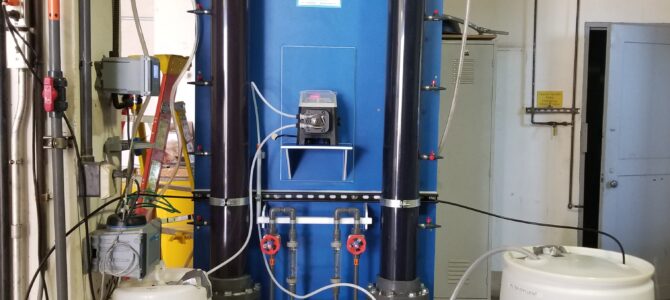Advanced oxidation is a highly effective process for treatment of organic contaminants and is frequently used for taste and odor mitigation and for treatment of water from sources impacted by human activity (indirect potable water reuse). However, it has some operational challenges on full-scale. One of the major challenges is dealing with residual hydrogen peroxide which interferes with subsequent chlorine disinfection by reacting with chlorine. Current methods of dealing with residual H2O2 involve adding more chlorine or using activated carbon to destroy H2O2. Both processes are expensive for a full scale water treatment plant, and our lab is evaluating alternatives to the currently established processes. This project is funded by the US Department of Interior Bureau of Reclamation.

